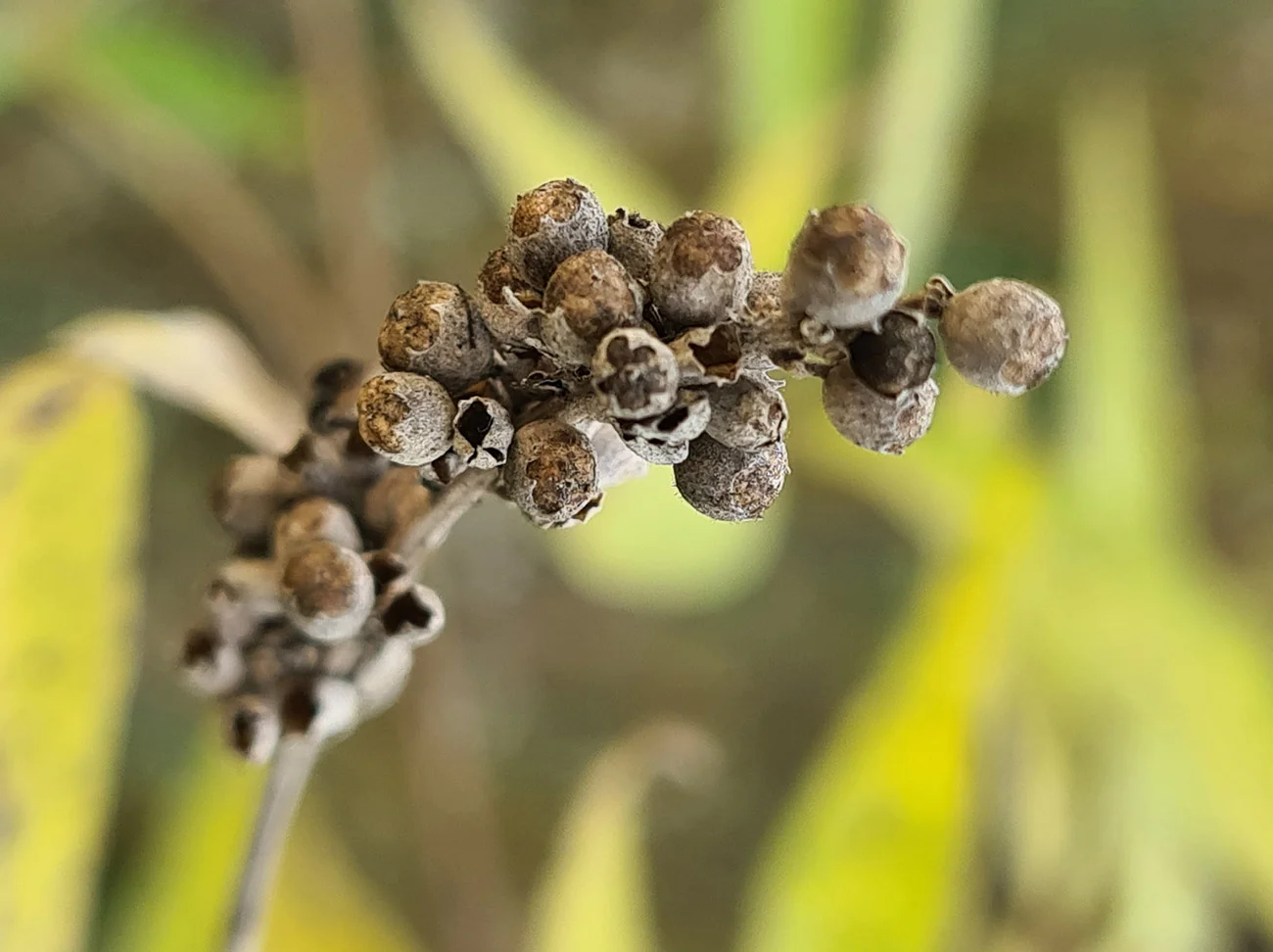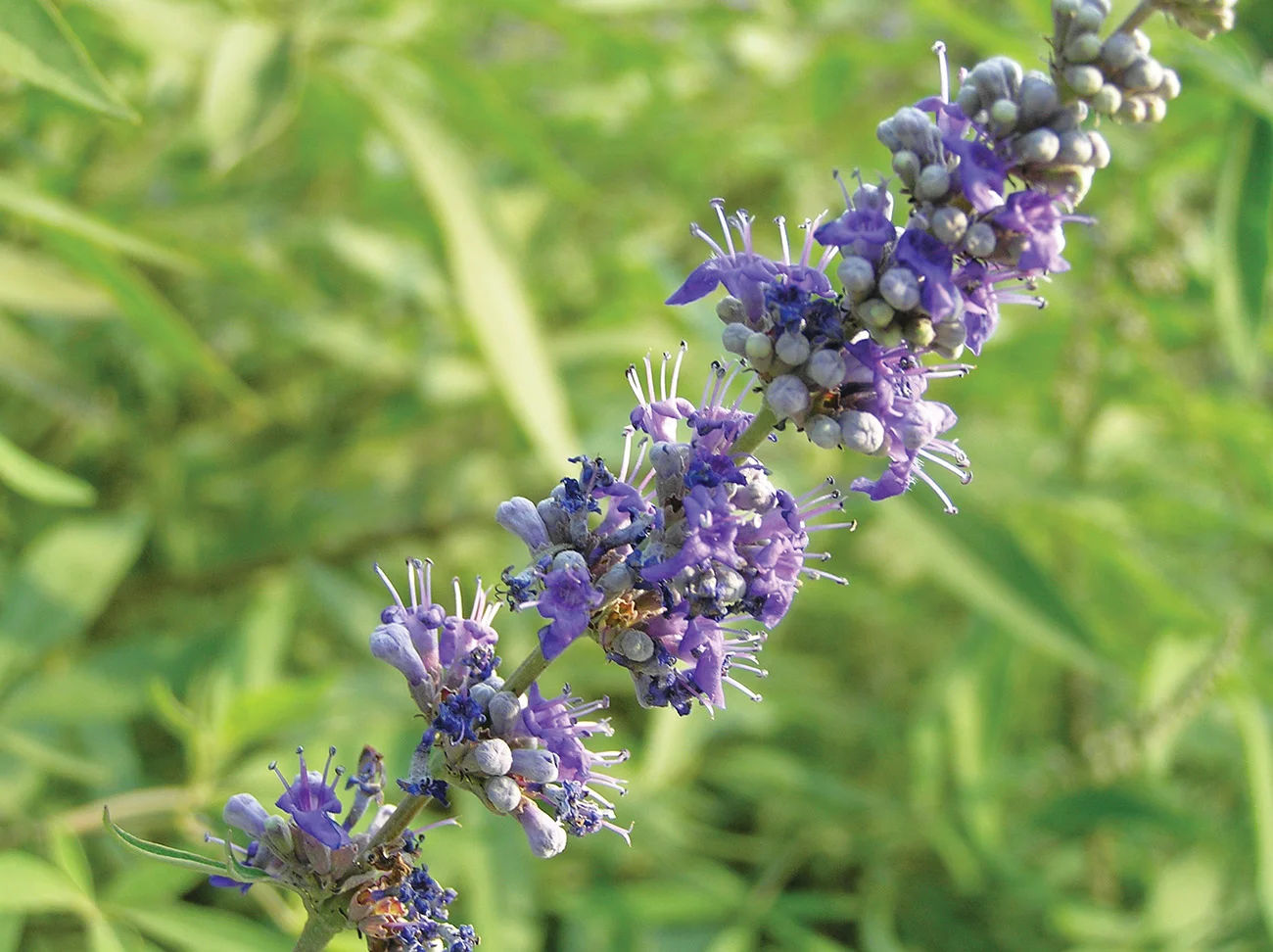PLANT STORIES
Vitex agnus-castus
Vitex agnus-castus
The Lygariá, or Lygía as we commonly call it on Kefalonia, (Chaste tree in English), is a deciduous shrub that prefers soils that retain moisture, which is why it is found in coastal areas or ravines. Its flexible branches have been used in basket weaving from ancient times to the present. On Kefalonia there are records that baskets made by previous generations were primarily made of reed, while the base, handle, and rim were made of chaste tree. Basket weaving was the main activity for some Kefalonians, as baskets were used in many tasks, from household chores to grape and olive harvesting. Today, the knowledge of making them has disappeared from the island.
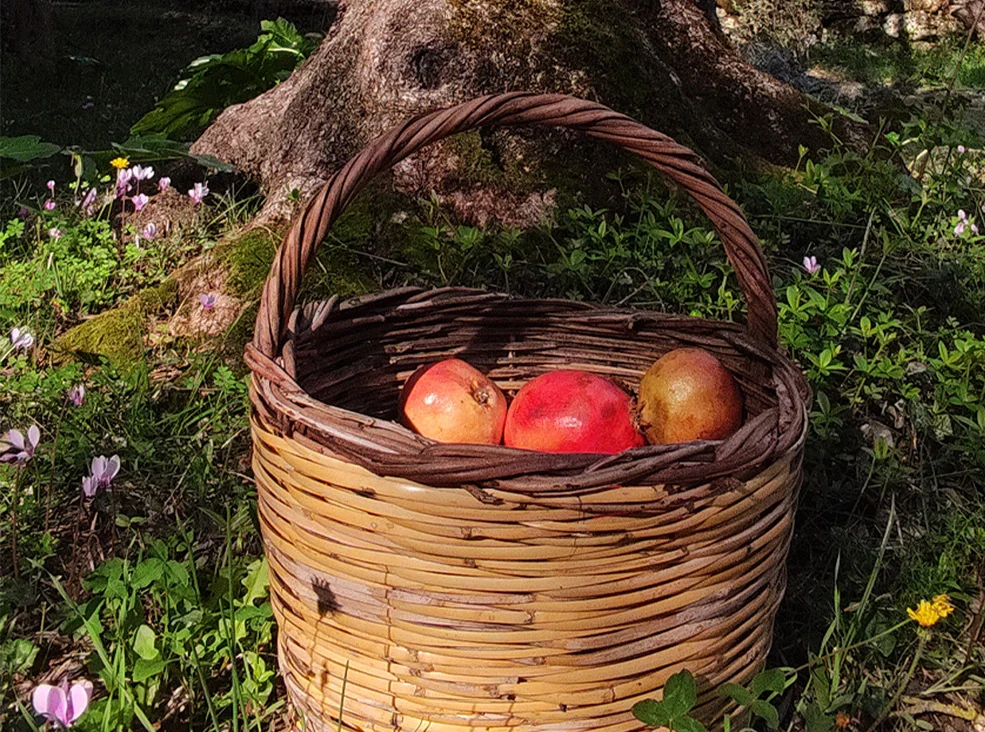
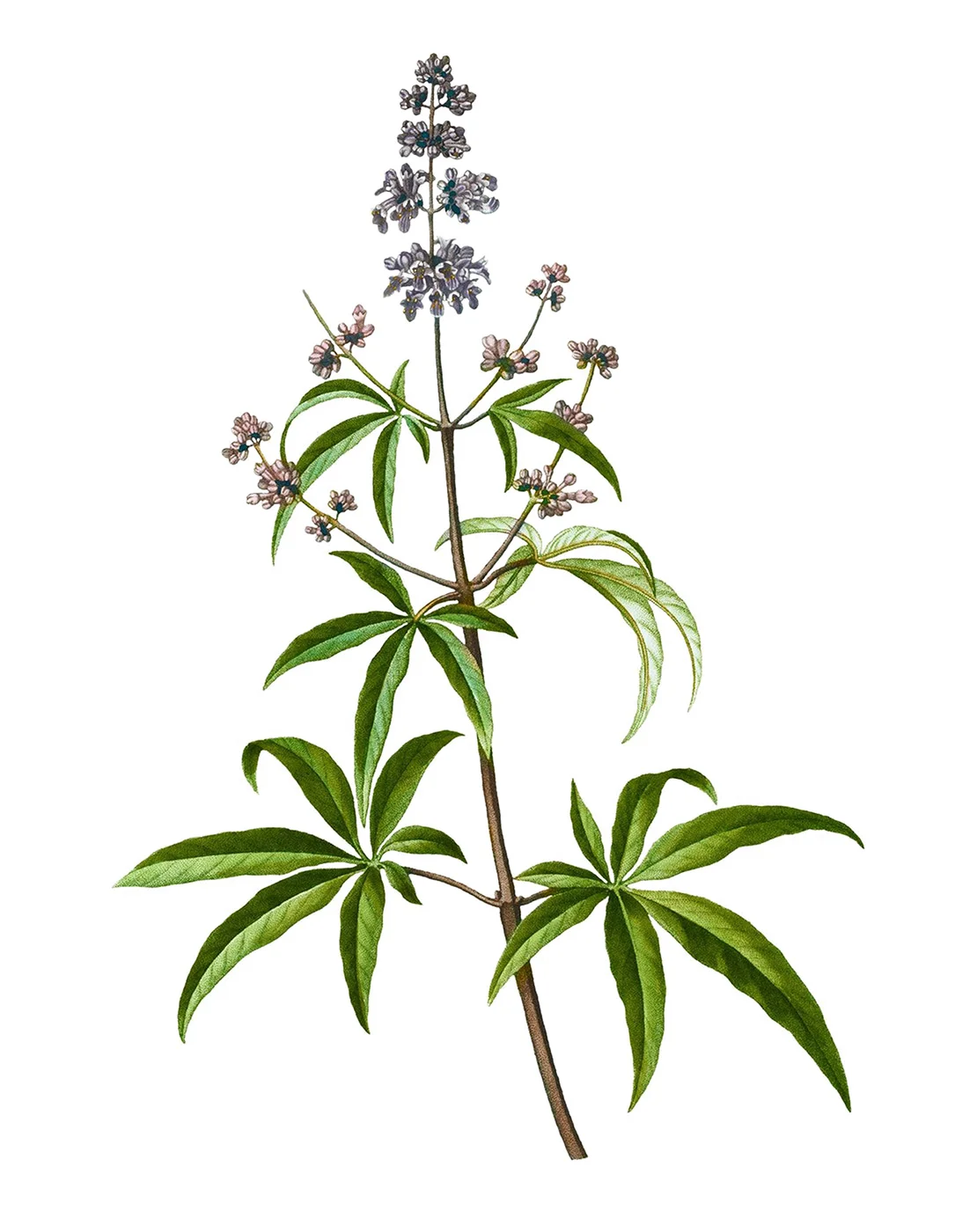
The plant was also used to create strong ropes with sturdy knots. Based on ethnobotanical references, scholars of the Odyssey believe that the ropes used by Odysseus to tie his companions to the bellies of the rams, to escape from the Cyclops, were made from the branches of the chaste-tree (Odyssey, line 9.427).
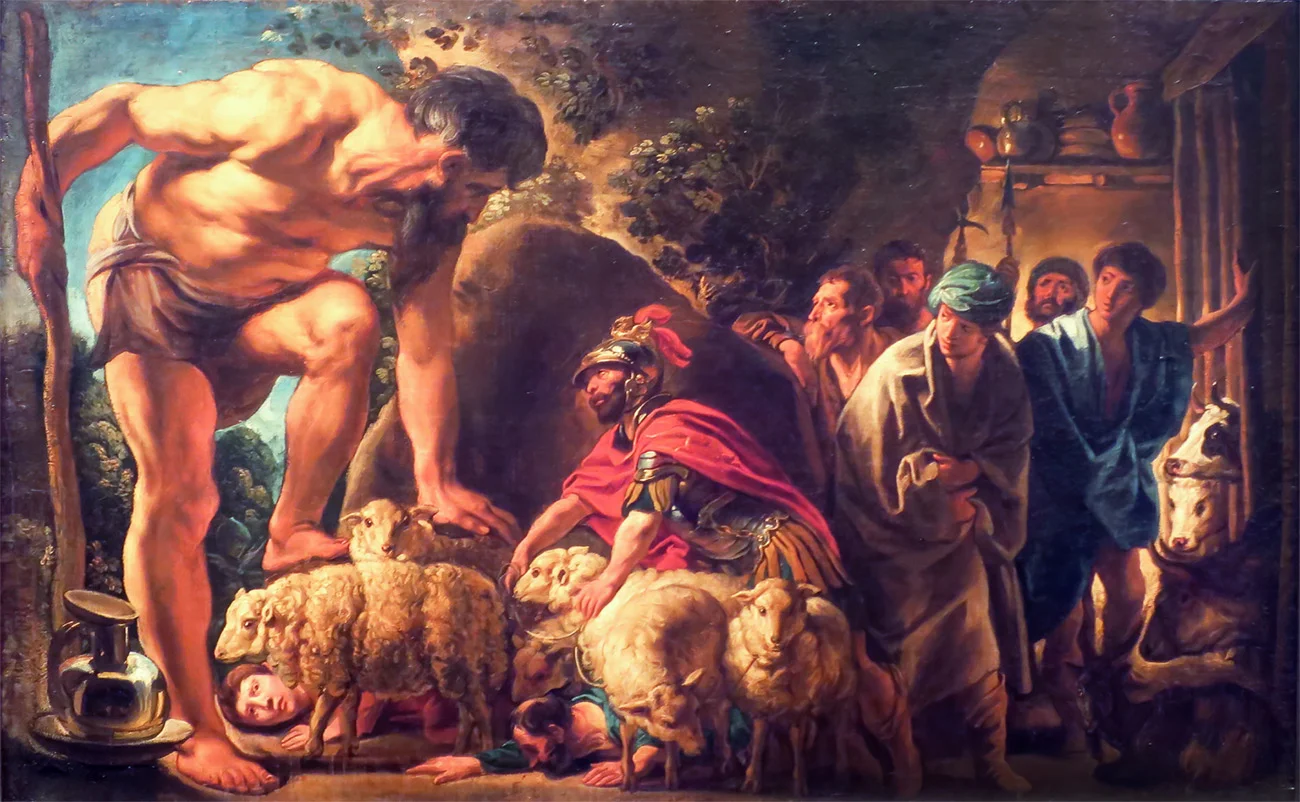
Its leaves are linear and lanceolate, with a fuzzy underside. Due to their palmate shape, they are easily confused with the leaves of the Cannabis genus. Its cyan, impressive and aromatic flowers appear from the middle of summer until September.
According to mythology, Hera, the goddess and protector of marriage, was born under a Lygía bush. Women in the Thesmophoria ceremonies used to lie on Chaste Tree branches, believing that this would help them maintain their purity. The scientific name of the plant, Agnus-castus, means "chaste".

The medicinal properties of the plant were mentioned in antiquity by Hippocrates and Dioscorides. Extracts from the fruit of Lygía are particularly well-known in modern pharmaceutical products for treating premenstrual syndrome. The fruits have a pungent taste and are used as a substitute for pepper. In folk medicine of the past, they were used to suppress sexual desire, which is why they were called the "pepper of monks".
As a testament to the beauty of its flowers and the various uses of the plant, the following folk saying has become widespread:
"Whoever passes by Lygía and doesn't take a branch, let them wither, dry out, and fall to the ground." (The Folk Names of Plants, Theodor von Heldreich)


